
In 1957, the first human-made object successfully launched into space was placed in orbit around Earth. This was Sputnik 1, a beautifully simple, Soviet-made spherical satellite with just four antennas.
But this historic event also marked another, more unsettling first: humanity had deposited its first piece of space debris. Part of the 267-tonne, 30m-tall rocket that launched Sputnik was stuck in orbit. Suddenly the world had a problem that we didn't know we needed to solve: the littering of outer space.
Thankfully, Sputnik and that rocket remnant de-orbited and burned up in our atmosphere fairly quickly after launch.
That hasn't always been the case, however - far from it. Over the course of just 66 years of space exploration, a vast amount of detritus has been left in orbit around Earth.
Now NASA and the Japan Aerospace Exploration Agency (JAXA) have an idea to help solve this issue: satellites made from a widely available, biodegradable material - wood.
The problem the agencies aim to address is a big and complex one and finding out just how big was the first stage of the project. We know that at least 130 million pieces of human-made debris orbit Earth, most of them whizzing around at over 7km/s - eight times faster than a typical bullet. Although that's a staggering number, some scientists think it's a conservative estimate.
This story is from the New Year 2024 edition of BBC Science Focus.
Start your 7-day Magzter GOLD free trial to access thousands of curated premium stories, and 9,000+ magazines and newspapers.
Already a subscriber ? Sign In
This story is from the New Year 2024 edition of BBC Science Focus.
Start your 7-day Magzter GOLD free trial to access thousands of curated premium stories, and 9,000+ magazines and newspapers.
Already a subscriber? Sign In
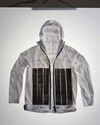
NOW YOU SEE ME, NOW YOU DON'T
Scientists around the world are working on ways to hide us from sight. But how close are we to developing tech that could make us invisible?

UNCORKED POTENTIAL
How much good can ditching drink for a month really do? Answer: a whole lot. In fact, science shows even short-term abstinence could unlock a cocktail of lasting benefits
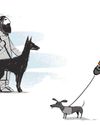
Scientists discover when humans and dogs became friends
The relationship spans thousands of years, but experts might have pinpointed the first connection
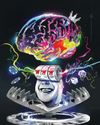
Why it's so hard to kick a gambling addiction
We now know that gambling can be as addictive as drugs, but there are factors that can make it even harder to quit

How much could Ozempic change our world?
The weight-loss drug has made headlines and broken sales records, but what does it mean for our future?
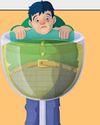
WHY DOES DRINKING ALCOHOL MAKE IT SO MUCH HARDER TO LOSE WEIGHT?
While enjoying the occasional glass of wine or pint of beer may seem harmless, regular or excessive alcohol consumption can significantly hinder your weight-loss journey for a few reasons:

Why do so many New Year's resolutions fail?
Establishing positive new habits is hard at any time of year. But there are ways to stop your attempts ending in failure
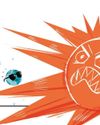
'Extreme' solar radiation storm could hit Earth
Sun-like stars may have tantrums far more frequently than we thought

HOW CAN I BANISH THE JANUARY BLUES?
Dark mornings, long chilly evenings and short days; many people find January tough.

Neutrinos are getting in the way of dark matter detection
These troublesome particles are difficult to detect, but they're starting to show up in places where they're not wanted